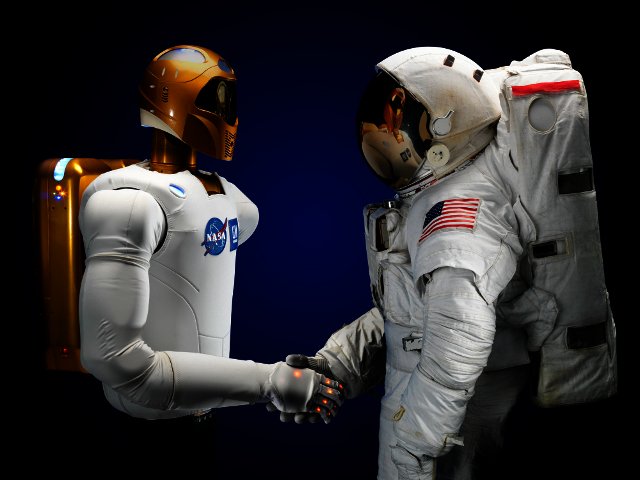The Robonaut 2 is the latest humanoid robot developed by NASA and will be the first American robot to visit the International Space Station when it shoots into orbit onboard the Space Shuttle Discovery on the 1st of November.
The Robonaut 2, or R2 for short will travel to the orbital station to give us a better understanding of human-robot interaction in space.
R2 was created through a joint venture between NASA and General Motors in 2007 and though it was originally intended to be earth-bound, engineers decided to see how it fares in the microgravity of the Discovery’s cargo bay.
R2 is already the most advanced dexterous humanoid robot in existence and once it reaches space it will become the first humanoid robot to reach orbit as well, an impressive rap sheet to say the least.
But the thing that sets R2 apart from other robots is the fact that regular people can interact with the robot while it is in space, since R2 has started sending updates about its upcoming mission from its new Twitter account, @AstroRobonaut.
With help from the team R2 will document the preparation for launch as well as the actual work aboard the International Space Station over its Twitter account.
On the morning of the 4th of August, the public will get its first chance to interview the robot and its team as they answer questions submitted to them by Twitter users. Anyone can participate, users simply have to submit their questions by including a ‘#4R2’ tag in their questions sent to @AstroRobonaut.
For some more news on NASA and their Twitter-fueled space adventures, click here.
Most Read Articles

Have Your Say
What new tech or developments are you most anticipating this year?




